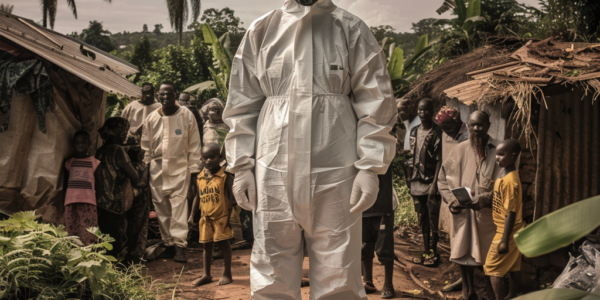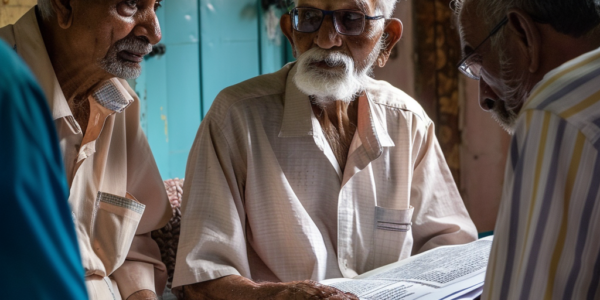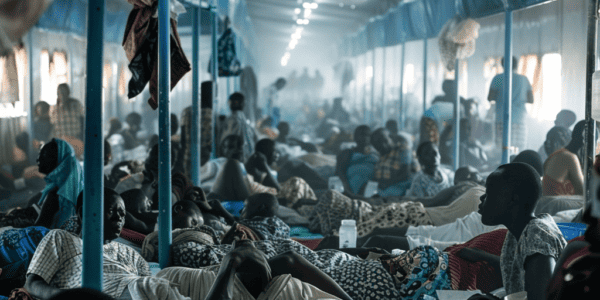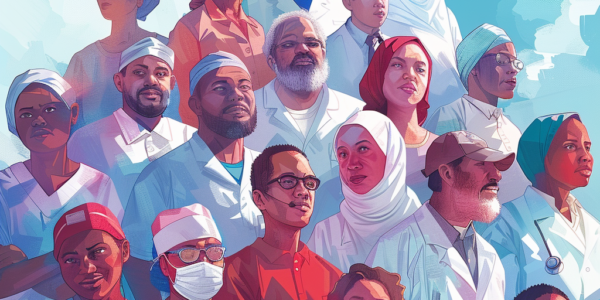The Urgent Need for Global Pandemic Preparedness in the Wake of the Ebola Outbreak
Dr. Maria Guevara, MSF international medical secretary, emphasizes the urgent need for global pandemic preparedness in the wake of the devastating impact of the Ebola outbreak in West Africa. Despite substantial investments in research and development for Ebola vaccines and treatments, the majority of medical resources remain unused, exacerbating disparities in outbreak prevention and response. The failures observed during previous outbreaks serve as a stark reminder of the persistent inequities that leave the world ill-prepared for future international public health crises.
New SKYTyphoid™ vaccine receives prequalification from World Health Organization
Global health leaders are aggressively improving access to new vaccines to combat the estimated 11 to 20 million typhoid fever cases and 120,000 deaths each year. SK bioscience’s SKYTyphoid™ typhoid conjugate vaccine has received prequalification from the World Health Organization, offering a safe and effective option for infants and young children. With significant outbreaks in sub-Saharan Africa and the first locally acquired case in Taiwan, the need for improved vaccines is evident.
Lessons from Smallpox Eradication for Health Threats in 2024
The improbable victory over smallpox holds lessons for health threats in 2024. Physician and podcaster Céline Gounder traveled to Bangladesh in 2022 to track down South Asian public health workers who were part of the battle to end smallpox nearly 50 years ago. The podcast captures the remarkable achievements and challenges faced by these public health workers in South Asia, shedding light on a history that was in danger of being lost. By documenting the stories of these unsung heroes, Gounder’s podcast aims to answer the question of how smallpox was defeated and what lessons that victory holds for addressing current health threats.
Global Cholera Outbreak Causes Concern
A multi-country outbreak of cholera has caused concern worldwide, with over 787,000 reported cases and 5,500 deaths in 31 countries. The shortage of Oral Cholera Vaccines (OCV) has been a major challenge, with demand doubling the available supply. The World Health Organization (WHO) has classified the global resurgence of cholera as a grade 3 emergency, with the risk assessed as very high. For the latest data on the outbreak, the WHO Global Cholera and AWD Dashboard is available for reference.
Deadly Outbreak of Parrot Fever Hits Europe
Deadly outbreak of parrot fever in Europe has led to five deaths, with symptoms including headache, muscle pain, and fever. Austria, Denmark, and Germany have reported an increase in cases, with suspected human-to-human transmission being rare.
WHO Releases Details on Fatal Nipah Virus Cases in Bangladesh
The World Health Organization (WHO) has released new details regarding two fatal cases of Nipah virus infections in Bangladesh. The cases, which were confirmed before February 9, resulted in the deaths of both patients. The individuals, a 38-year-old man and a 3-year-old girl, were from Dhaka division but from separate districts and were not epidemiologically linked to each other, according to a statement from the WHO. The man’s symptoms began on January 11, and he passed away on January 28 after testing positive for Nipah virus. It was discovered that he had consumed raw date palm sap, a practice known to increase the risk of contracting the disease. Despite efforts to educate communities about the risks, public health officials continue to warn against drinking raw date palm sap due to potential contamination with bat droppings containing the virus. The second patient, a 3-year-old girl, was isolated in a Dhaka city hospital on January 30, and her Nipah virus infection was confirmed the following day. Investigators found that she had regularly consumed raw date palm sap. However, all 67 of her contacts tested negative for the virus. The WHO emphasized that the risk to Bangladesh is moderate, citing the high case-fatality rate and ongoing consumption of raw date palm sap. Additionally, the regional risk is considered moderate due to Bangladesh sharing an ecological corridor with India and Myanmar for the bats that are the natural Nipah virus hosts. Currently, there are no vaccines or treatments for Nipah virus, which has been classified as a priority disease for countermeasure research and development.
New Typhoid Conjugate Vaccine Receives WHO Prequalification
The recent prequalification of the new typhoid conjugate vaccine, SKYTyphoid™, by the World Health Organization (WHO) marks a pivotal moment in global health, opening the doors for public procurement of the vaccine by UN organizations. Developed through collaboration and with funding support, SKYTyphoid™ represents a significant advancement in typhoid prevention, offering a safe and effective solution for infants and young children. The achievement of WHO prequalification for SKYTyphoid™ marks a significant step forward in global health, offering a promising solution for the prevention of typhoid and contributing to the accessibility of life-saving vaccines for vulnerable populations worldwide.
Measles Cases on the Rise in the United States Despite Widespread Vaccine Availability
Measles cases are on the rise in the United States, reflecting a decline in vaccine confidence, despite the availability of a life-saving vaccine. Recent reports confirm multiple cases of measles among children in Broward County, Florida, with concerns raised over the state’s Surgeon General’s statements potentially undermining the use of vaccines. The CDC has issued an alert to clinicians urging vigilance, as most cases were identified in unvaccinated children and adolescents. Experts emphasize the need for high vaccination coverage to prevent future outbreaks of preventable diseases.
World TB Day 2024: ‘Yes! We can end TB!’
World TB Day 2024 focuses on the theme ‘Yes! We can end TB!’ and highlights the need for high-level leadership, increased investments, and faster adoption of new recommendations from the WHO. The organization will release an investment case to aid countries in scaling up the roll-out of TB preventive treatment. The South-East Asia Region, home to a quarter of the world’s population, carries over 45% of the annual TB burden, leading to a high-level ministerial meeting and the ‘Gandhinagar Declaration’ to reinvigorate political commitment towards ending TB.
Covid-19 pandemic reverses two decades of progress in fight against tuberculosis
The Covid-19 pandemic has reversed two decades of progress in the fight against tuberculosis, with global deaths from TB increasing for the first time in almost a decade. The pandemic-induced lockdowns, disruptions in healthcare, and the redirection of resources have hampered active case finding, diagnosis, and treatment, leading to a reversal of gains made in recent years. Despite being preventable and curable, TB remains staggeringly widespread, with almost one-quarter of the world’s population infected with the TB bacteria.










